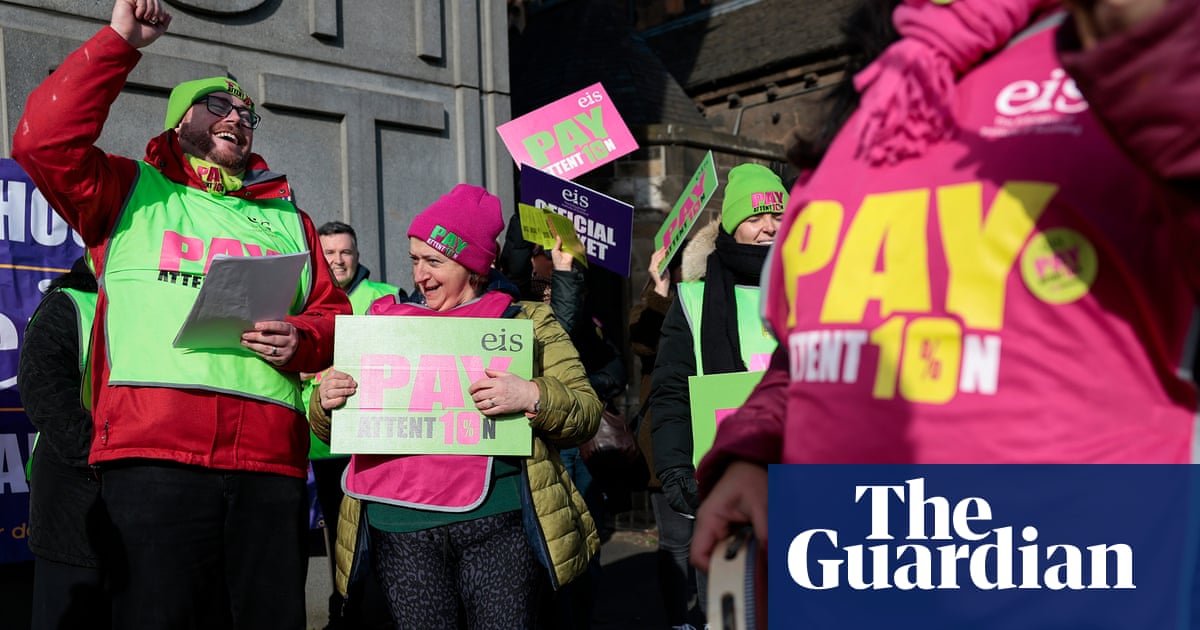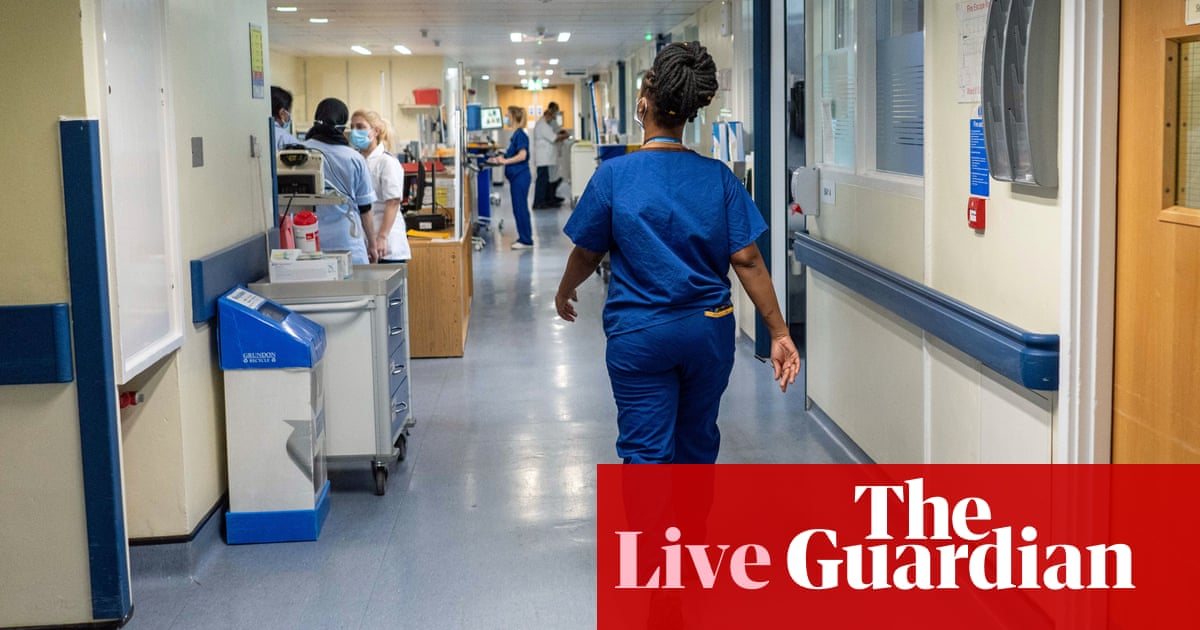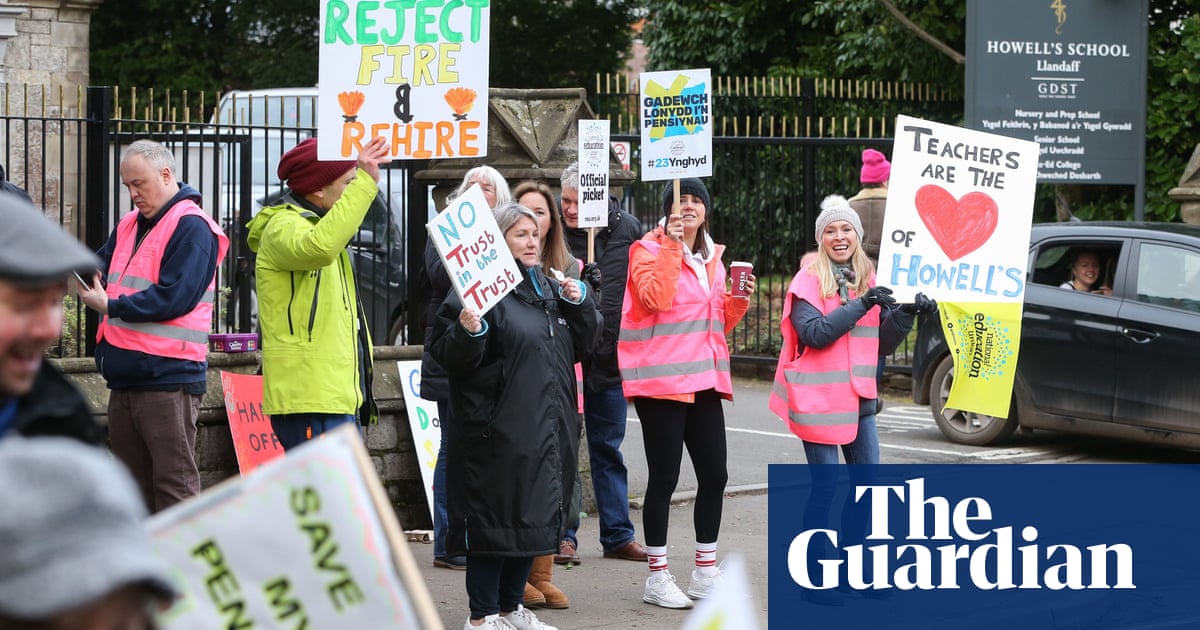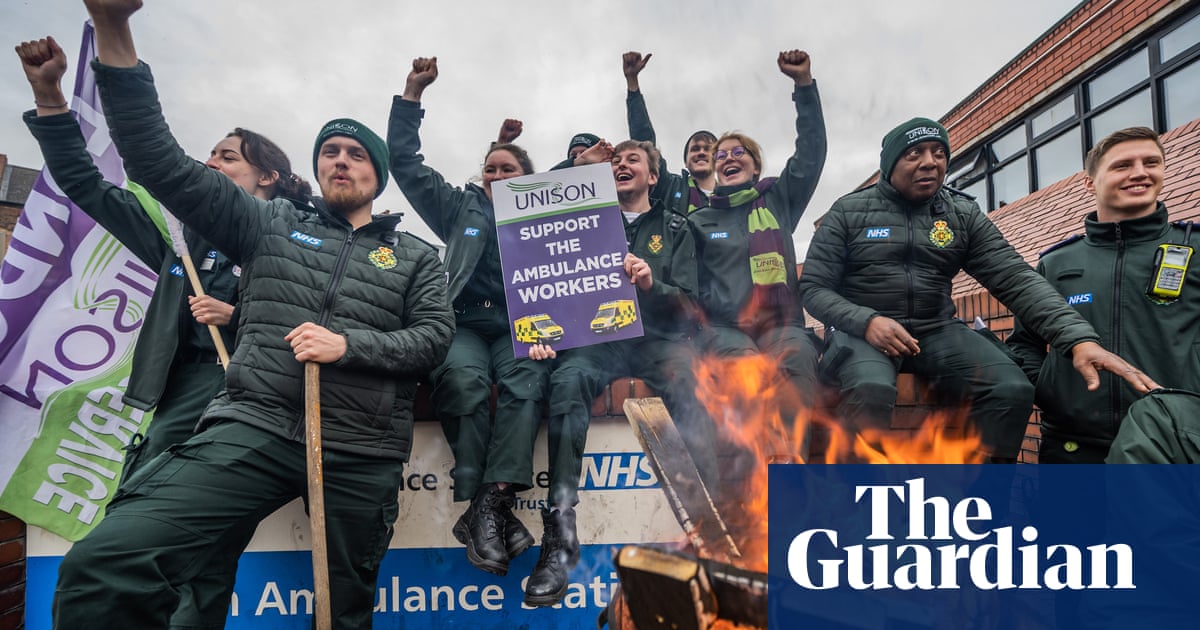
Scottish nurses, paramedics and midwives are threatening a wave of strikes early next year after heavily rejecting a “best and final” pay offer from ministers in Edinburgh.
The Royal College of Nursing and Royal College of Midwives announced on Wednesday their members had voted overwhelmingly against the offer and were considering when to stage nationwide strike action.
Their votes, which follow a similar rejection by Scottish paramedics and hospital workers in the GMB last week, will put Nicola Sturgeon’s government under intense pressure to resume pay talks.
It could also set back hopes of an NHS pay deal in the rest of the UK: union leaders had privately hoped a Scottish settlement, worth about 7.5%, could be used to pressure ministers in London to match Scotland’s offer.
Scotland’s health unions are to meet on Thursday morning to discuss a joint strategy before meeting the Scottish health secretary, Humza Yousaf, and government officials to press the case for further pay talks later that day.
Julie Lamberth, the board chair of RCN Scotland, 82% of whose members rejected the offer, said: “The result could not be clearer – we have forcefully rejected what the Scottish government said is its ‘best and final’ offer. [The] ball is in Scottish government’s court if strike action is going to be avoided.”
The RCN and RCM ballot results will come as a significant blow to Sturgeon, who had hoped the NHS in Scotland would escape the wave of strikes that have hit services across the rest of the UK. Sixty-five per cent of midwives rejected the offer.
Unlike the UK government’s proposal of £1,400 increase in England, Wales and Northern Ireland, Scottish ministers tabled a revised deal last month offering all NHS staff in Scotland a tiered pay rise worth up to 11.24% for the lowest paid, 7.5% for most health workers, about 2% for the highest paid, along with reduced working hours.
Scottish nurses and midwives did not take part in hospital strikes across the rest of the UK because their industrial action was suspended while they considered the offer.
Buoyed by that decision and a very narrow vote by health staff in the Unite and Unison unions to accept the Scottish offer 10 days ago, Sturgeon suggested last week the NHS in Scotland was in safer hands than in the rest of the UK because she prized finding negotiated settlements with the unions.
That is understood to have irritated union leaders. Wilma Brown, the chair of Unison Scotland’s health committee, said earlier this month that her members’ decision was a “pause” in the dispute over health service funding generally. “It is not a win for government – it is a warning,” Brown said.
The decisions by Scotland’s nurses and midwives may be seen as a blow, too, to the hopes of resolving the pay crisis in the rest of the UK.
Health union officials in London had privately voiced tentative optimism recently that acceptance by many or most NHS staff in Scotland of the revised offer would help them put pressure on Rishi Sunak to increase his pay offer, equivalent to about 4% increase for most frontline staff.
Giving evidence on Tuesday to the Commons health select committee, Rachel Harrison, the national secretary of the GMB, was asked whether her union would call off the ambulance strikes if the health secretary, Steve Barclay, offered them 7.5%.
She said: “We would suspend some action so that we could fully consult our members on that offer.”
In the summer, Barclay, in his first stint as health secretary, said all NHS staff, except for doctors and dentists, would get a pay rise for 2022-23 of “at least £1,400” each. That equates to about 4% for most staff, though less for some and a little more for others.
However, the unions have been pressing for rises that match inflation – and, in the RCN’s case, an increase of 5% above that.
Humza Yousaf, the Scottish health secretary, confirmed he would start fresh talks with the unions on Thursday but said the unions had already been offered “over half a billion pounds” despite his government facing “extraordinary financial challenges”.
“Constructive engagement is crucial; those unions who have rejected our pay offer have all said they want to avoid industrial action, we must collectively work toward avoiding strikes taking place this winter at a time of already significant pressure for our NHS,” he said.












